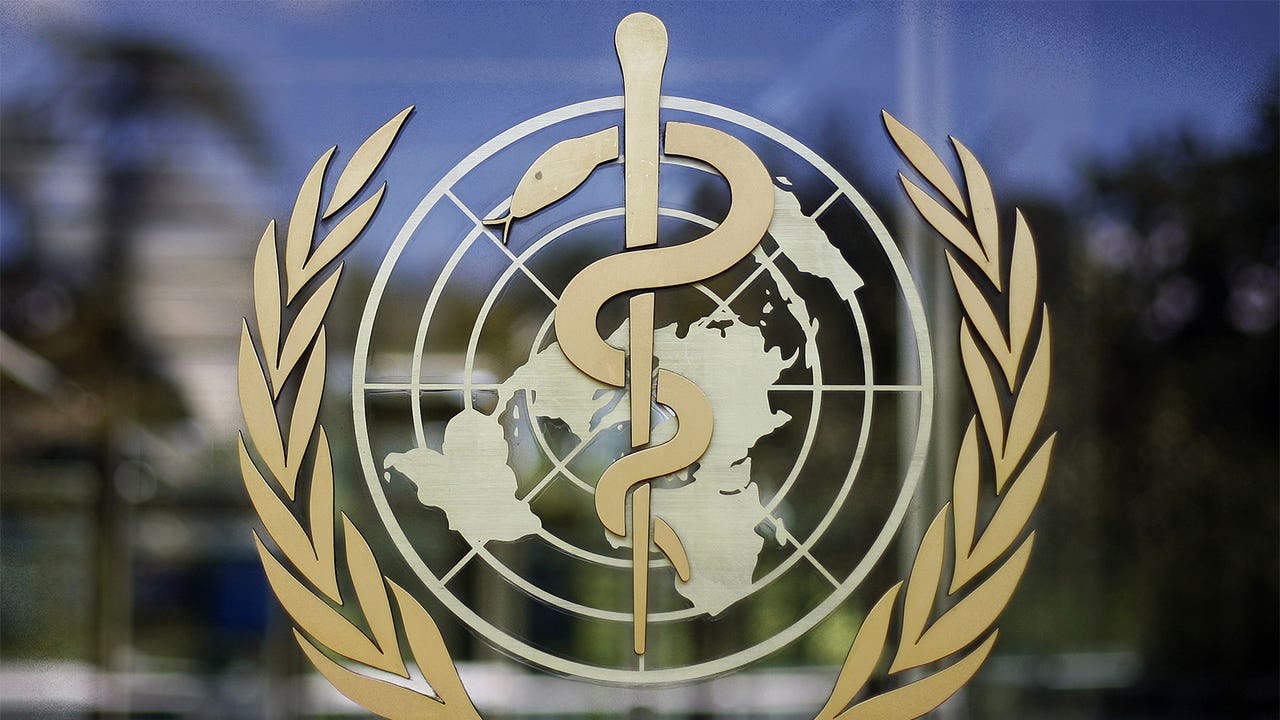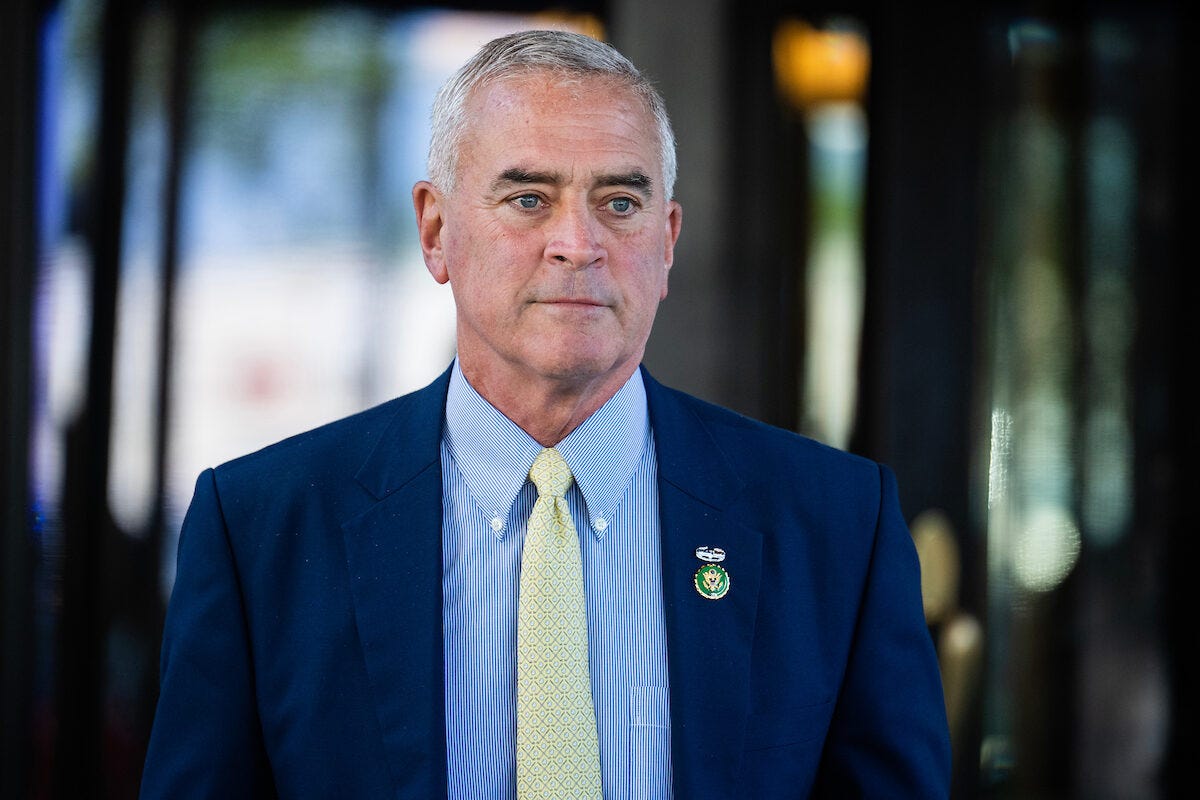WHO Pandemic Treaty Stalls, Ohio Republican Opposes
By Nick Rogers

CHARDON, OHIO - The 77th “World Health Assembly” is currently being held in Geneva Switzerland; the main goal of which is to finalize the world’s first “Pandemic Agreement” treaty aimed at consolidating the World Health Organization (WHO)’s power in order to globally dictate logistics of response to the next supposed worldwide viral outbreak (including what actually constitutes a “pandemic,” along with the production and distribution of vaccines). Treaty talks have log jammed as member-state representatives – including Ohio Republican Brad Wenstrup – have taken exception to what some have called a “global power grab.”
“The COVID-19 pandemic showed us that the WHO is not the preeminent global health institution that perhaps it once was,” said Rep. Wenstrup, R-Ohio, chair of the House Oversight and Accountability Select Subcommittee on the Coronavirus Pandemic. “Politics should never have a place in science.”
Wenstrup is one of 49 US Senators who, in a letter to President Joe Biden, called for a rejection of the current proposed treaty. The group has called on the Biden administration to send the treaty to the Senate for ratification, but it is unclear at this point if that will come to pass, so to speak.

Former President Donald Trump famously attempted a US exit from the WHO, claiming that the organization pressured the Chinese government to “mislead the world” about the COVID-19 pandemic. And while the departure never took place, many Republicans today are still weary of the global health giant, citing the WHO’s strong ties to the International Planned Parenthood Federation, among other reasons.
“The treaty…,” Wenstrup and company said, “…focuses on mandated resource and technology transfers [primarily having to do with vaccine development and distribution], shredding intellectual property rights [and] infringing free speech.”
The two most vocal opponents of the treaty in Washington have been Wenstrup and Christopher H. Smith, R-N.J., and their opposition echoes the sentiments of Donald Trump. This week, Wenstrup sent another letter to the US Government Accountability office sounding the alarm on supposed ties between the WHO and China, irked by the amount of US taxpayer dollars which may be funding agendas that “undermine American interests.”
“Throughout the COVID-19 pandemic the WHO, an organization largely funded by American taxpayers, ceded to propaganda from the Chinese Communist Party rather than conducting truly independent inquiries into the origins of COVID-19,” Wenstrup said.
The opposition keeps on coming. On May 8, a group of 22 US Attorney Generals – led by Montana AG Austin Knudsen – sent a letter to President Biden voicing their disapproval of the proposed treaty. “We will resist any attempt to enable the WHO to directly or indirectly set public policy for our citizens,” the letter reads. The AGs claim that the treaty, in its current iteration, would “…transform the WHO from an advisory, charitable organization into the world’s governor of public health.”
Among other protestations, the letter claims that the treaty will create a “global surveillance infrastructure,” and that it “…would only exacerbate the WHO’s underlying problems and enable more civil liberties violations during future ‘emergencies.’” The AGs argue that health policies should be decided on a state-by-state basis; not by the federal government, and certainly not by an unelected group of international technocrats.
According to the Brownstone Institute – a nonprofit who describes itself as “placing the highest value on the voluntary interaction of individuals and groups while minimizing the use of violence and force including that which is exercised by public or private authorities” – the treaty would “…expand the definitions of pandemics [and] health emergencies, including the introduction of ‘potential’ for harm rather than actual harm.” The group points out that the current treaty amendments would change the recommendations of the International Health Regulations (IHR) for member-states “from ‘non-binding’ to mandatory.”
Speaking before the World Economic Forum (WEF) in Davos, Switzerland in January, WHO Secretary General Tedros Adhanom Ghebreyesus said, “This is about a common enemy and, without a shared response, starting with preparedness, we will face the same problem as COVID.” Ghebreyesus has described the treaty as “a legally binding pact between countries working together.”
In addition to the WEF, Ghebreyesus is backed by KFF, a health policy research nonprofit who claims to be “The independent source for health policy research, polling, and news.” The institute says that the treaty, with its revised amendments, would create a more “equitable global response” to future pandemics.
Ghebreyesus and the KFF have received opposition beyond US borders. The U.K. government has cited similar concerns as Wenstrup and others over possible overstepping of national sovereignty that the treaty may bring about.
And so it seems as though the pandemic treaty agreement is far from being agreed upon. It appears that major changes would need to be made if it is to appease those of us who continue to value national sovereignty and Constitutional values. Stay tuned.




